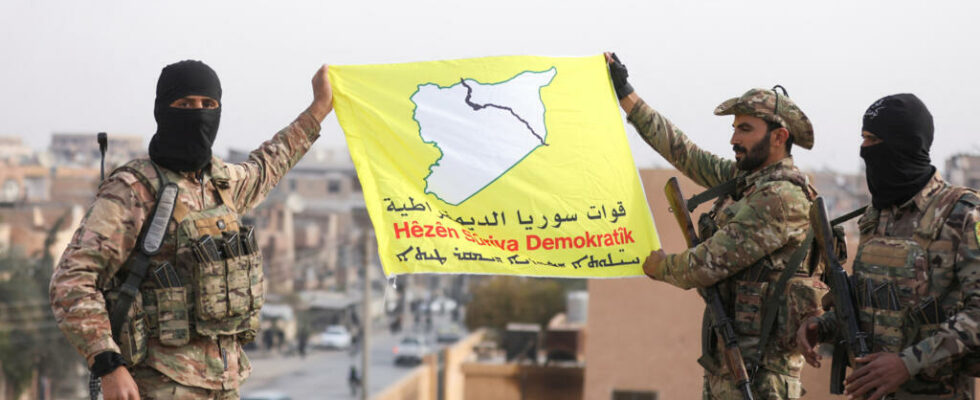The fall of the Damascus regime is shaking up the political landscape and the balance of power in Syria. Pro-Turkish militias launched an offensive against the region of the Autonomous Administration of North-East Syria (AANES) led by a predominantly Kurdish power. And the Islamist group HTS, now in power in Damascus, seems to have a political project at odds with that of the AANES. Interview with Boris James, lecturer at the University of Paul Valéry and expert on Kurdistan.
3 mins
RFI: Can the region of the Autonomous Administration of North-East Syria (AANES) have a future in this new Syria in your opinion?
Boris James: Yes, it can have a future, but… it would be a somewhat “unnatural” future. Let me explain: the pro-Turkish militias in the North-West are at war against the Kurds. And the new power in Damascus, led by the HTS, has a project that is the opposite of that of the AANES.
HTS cannot, ideologically, be satisfied with part of Syria. The project, set up by the Autonomous Administration of North-East Syria (AANES), aims to be differentialist and alternative. On the contrary, the HTS project is global: it targets the territorial integrity of all of Syria, with the ambition of replacing the regime in place. The Arab nationalist discourse is very present. In total opposition to the Kurdish project.
Also readTürkiye: the fight against Kurdish forces in Syria, a priority for Ankara
So, a future for the Kurdish administration is only possible under certain conditions?
The Kurdish Autonomous Administration can hope for a future only if it benefits from very strong support from an external actor, such as the United States or the international coalition. [contre Daech ndlr].
Even if, for the moment, HTS shows a desire not to directly confront the Kurdish forces and to moderate its discourse, their project remains incompatible with that of the Kurdish administration. There could be some kind of autonomy de facto or quasi-independence, but it would be an imposed compromise.
And today, where are the negotiations between HTS, the new power in Damascus and the Kurds?
It’s very difficult to say. Discussions inevitably took place, particularly around the capture of Aleppo. But the distance between these actors remains enormous. HTS does not work directly on this front. The group is currently focused on the Syrian coast.
As for the idea of a non-aggression pact or a coalition government integrating Kurdish forces, it seems unrealistic to me for the moment. Right now, HTS is primarily seeking to avoid an open front with the Kurds, but this is fragile.
Especially with the many Arab tribes of Deir Ezzor beginning to pledge allegiance to the new power in Damascus. And the humanitarian situation in all this?
The humanitarian situation in northeast Syria remains worrying. During the offensive on Aleppo and in the Tell Rifaat region, many civilians had to flee. We are talking about tens of thousands of displaced people, some for the second time after leaving Ras al-Ain in 2018.
NGOs are present and local solidarity plays a role, but we know how much Syria has already suffered from multiple humanitarian crises. The situation could become even more critical if fighting intensifies in areas like Kobane or Manbij, where bombardments by the Turkish army are already reported.
Also readWhat the images say about Israeli strikes on Syria
